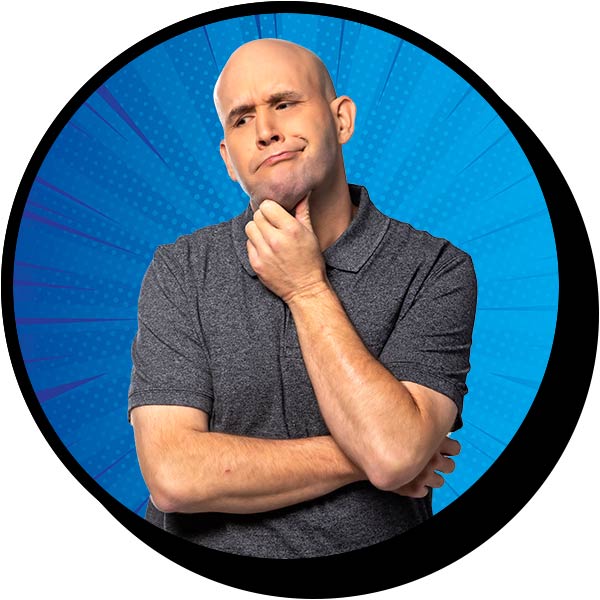by Brent Hearn •
The good news: There’s significantly less stigma concerning mental illness and treatment than there used to be. As a society, the topic of mental health is much less taboo than it once was; overall, people tend to be more informed about mental health issues and more comfortable discussing them.
The not-so-good news: “Significantly less” is not the same as “none.” And all too often, stigma and misinformation go hand in hand, with one feeding the other.
In this article, we’re going to take a look at a mental health condition that many people are aware of and that far too many people misunderstand: Attention-Deficit/Hyperactivity Disorder. (Please note: We’re just scratching the surface here; to learn more, please refer to the sources below this article.)
One might think that since ADHD gets so much press, there would be fewer myths surrounding it, but that doesn’t seem to be the case. Let’s dig right in.
Myth #1: “ADHD is just kids being kids.”
Those six words hold two major erroneous assumptions. Let’s address them one at a time.
As for the first: To be sure, many ADHD symptoms sound like “normal” behavior for children: rambunctiousness, impulsivity, difficulty paying attention or staying on task, etc. Those with the disorder, however, display some combination of these symptoms in excessive, problematic amounts in ways that can negatively impact their lives.
As for the second: Adults can have ADHD too. Some were diagnosed as children, while others are diagnosed later in life.
Myth #2: “Sure, I get that ADHD is a thing, but it’s clearly overdiagnosed.”
Again, multiple erroneous assumptions here. It’s illogical to conclude that an increase—even a significant one—in ADHD diagnoses means the disorder is overdiagnosed. One has to go deeper and account for all variables.
This is true for any disorder. Think about it: If a better means of detecting cancer is developed, diagnoses are likely to increase. Diagnostic capabilities have increased; therefore, so will the number of cases. And that’s just one hypothetical example that addresses only one variable.
Enough of that little thought experiment. Here are five specific reasons for the increasing incidence of ADHD, according to UC Davis Health:
- increased awareness by the public
- improved tools for detection
- increasing expectations placed on young children
- increasing recognition of ADHD in adults previously not diagnosed
- increasing recognition of females having ADHD
“Which do you have—ADD or ADHD?”
Okay, so this isn’t a myth so much as a general confusion about the terminology, but it’s still worth addressing. Bear with us—this will take a minute. (And we’re giving you the super-condensed version!)
It probably doesn’t help that the disorder used to be known by a different name. (It’s actually been known by multiple different names. Anyone who thinks that ADHD is a “new” disorder might be surprised to learn that symptoms of what we now know as ADHD were described by Hippocrates—yes, he of “Hippocratic oath” fame—over 2,400 years ago!)
Fast-forward to more recent history. In a revised third edition of the American Psychiatric Association’s Diagnostic and Statistical Manual of Mental Disorders (DSM-III) released in 1987, the standard name of the disorder was changed from ADD to ADHD. In 1994, the DSM-IV refined the diagnosis to describe three different types of ADHD. (The DSM-5 now considers them to be presentations rather than types.) These are inattentive type, hyperactive/impulsive type, and combined type. In short, no matter which symptoms someone with the disorder displays, the diagnosis falls under the umbrella of ADHD.
As mentioned earlier, we’re just scratching the surface; if you’re interested in reading more, the links below are a good place to start.
If you believe you or your child may be experiencing symptoms of ADHD, Mental Health America has an ADHD screening tool that might serve as a good starting place. Make an appointment with a mental health care provider to discuss your concerns.
Sources:
Attention Deficit Disorder Association (ADDA): ADHD Facts
CHADD: More Fire Than Water: A Short History of ADHD
Mental Health America: ADHD Test
UC Davis Health | Mind Institute: Myths About ADHD
WebMD: ADD vs. ADHD









 ▶︎
▶︎  Why is the Discount Challenge prize amount $15,024? Because that is the average “per-occurrence” fine for Medicare inducements. That’s not $15,024 per patient, that’s not per provider, that’s PER VISIT. Stinks, doesn’t it? To us, the prize amount is worth the investment if we can help our profession better understand proper discounting.
Why is the Discount Challenge prize amount $15,024? Because that is the average “per-occurrence” fine for Medicare inducements. That’s not $15,024 per patient, that’s not per provider, that’s PER VISIT. Stinks, doesn’t it? To us, the prize amount is worth the investment if we can help our profession better understand proper discounting.